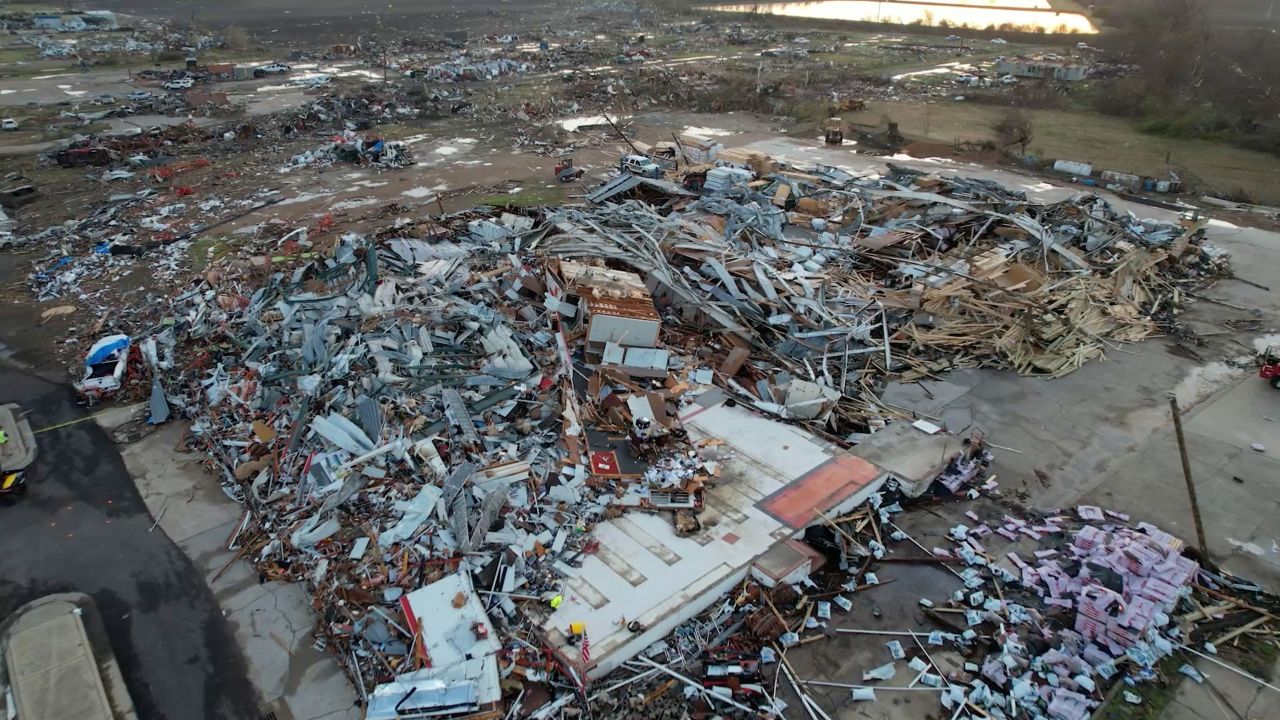The United Brain Association is reaching out to any and all who can support the American Red Cross and The Salvation Army Emergency Relief Efforts in Mississippi, Alabama, Tennessee, and Georgia after Friday’s devastating Rolling Fork and Silver City, Mississippi EF-4 tornado and nine other tornados across the south. Please help in any way you can.
26 confirmed deaths have been reported so far.
For an in-depth report on Natural Disasters and PTSD, please click the link below:
https://unitedbrainassociation.info/2019/12/31/ptsd-the-reality-of-post-disaster-trauma/
Natural disasters such as hurricanes, tornadoes, and earthquakes are capable of causing death, destruction, and catastrophe; they also can cause Post Traumatic Stress Disorder (PTSD), an emotional and psychological reaction to trauma. Post-Disaster trauma can have the same impact on a person’s mental health.
Experts say the devastating effects of post-disaster trauma can linger long after the relief and rebuilding efforts take shape; research has shown that as many as 25% of people directly or indirectly affected by high-impact disasters could be diagnosed with symptoms of PTSD.
“Natural disasters can cause losses of homes, neighborhoods, belongings, and even the death of family and friends. When exposed to life-threatening situations or those which encompass significant loss or grief, PTSD can disrupt the lives of sufferers for years until they recognize the symptoms and seek help,” says Anna Harwood, a clinical psychologist.

The Effects of PTSD
According to Dr. Susanne Babbel, MFT, PhD, Somatic Psychology, “These types of experiences are particularly insidious because they tend to traumatize large populations at once, and can result in epidemics of Survivor Guilt and other PTSD symptoms.”
The American Psychiatric Association says that people living with PTSD have recurring intense, disturbing thoughts and feelings connected to the experience that lingers after the traumatic disaster has ended. PTSD may manifest through flashbacks or nightmares, and those that suffer may feel a range of emotions such as sadness, fear, anger, detachment, or isolation. In addition, those with PTSD may avoid certain situations or triggers like noises, smells, or flashes, reminding them of the traumatizing event(s).
It’s important to note that PTSD following a natural disaster can occur at different times for each individual. Some survivors may appear perfectly fine right after, only to be plagued with symptoms months later.
Post-Disaster Trauma – How to Cope with PTSD Following a Natural Disaster
Once disaster relief subsides, mental health healing must begin. While it is common to feel anxiety following the event, know that within a few months, most can resume functioning as they did before the disaster. Those that cannot are likely suffering from PTSD, and it’s important to seek support.
To find a psychologist in your area, visit APA’s Psychologist Locator.
Be Prepared
While we may not have the power to stop the forces of Mother Nature, one thing you can do beforehand is to arm yourself and those you love with information about the emotional toll that may result following a natural disaster. To provide yourself a level of comfort, be aware of potential PTSD symptoms, as well as how to cope and seek treatment if necessary. For more information on PTSD, please click here.
Check out https://www.ready.gov/ to learn more about being emotionally and physically prepared before and after a natural disaster. If you or someone you love is struggling with a mental health crisis, please visit this link to find mental health resources and community networking opportunities to get help. You are not alone; people are available around the clock to help you through these dark times.
If you’d like to receive updates and news from The United Brain Association straight to your inbox, please subscribe to our newsletter here. If you’d like to help us fund life-changing education and research into over 600 brain and mental health-related issues and disorders, please donate here. At the United Brain Association, NO MIND IS LEFT BEHIND!
Photo credit: NPR, CNN
You Are Not Alone
For you or a loved one to be diagnosed with a brain or mental health-related illness or disorder is overwhelming, and leads to a quest for support and answers to important questions. UBA has built a safe, caring and compassionate community for you to share your journey, connect with others in similar situations, learn about breakthroughs, and to simply find comfort.

Make a Donation, Make a Difference
We have a close relationship with researchers working on an array of brain and mental health-related issues and disorders. We keep abreast with cutting-edge research projects and fund those with the greatest insight and promise. Please donate generously today; help make a difference for your loved ones, now and in their future.
The United Brain Association – No Mind Left Behind




